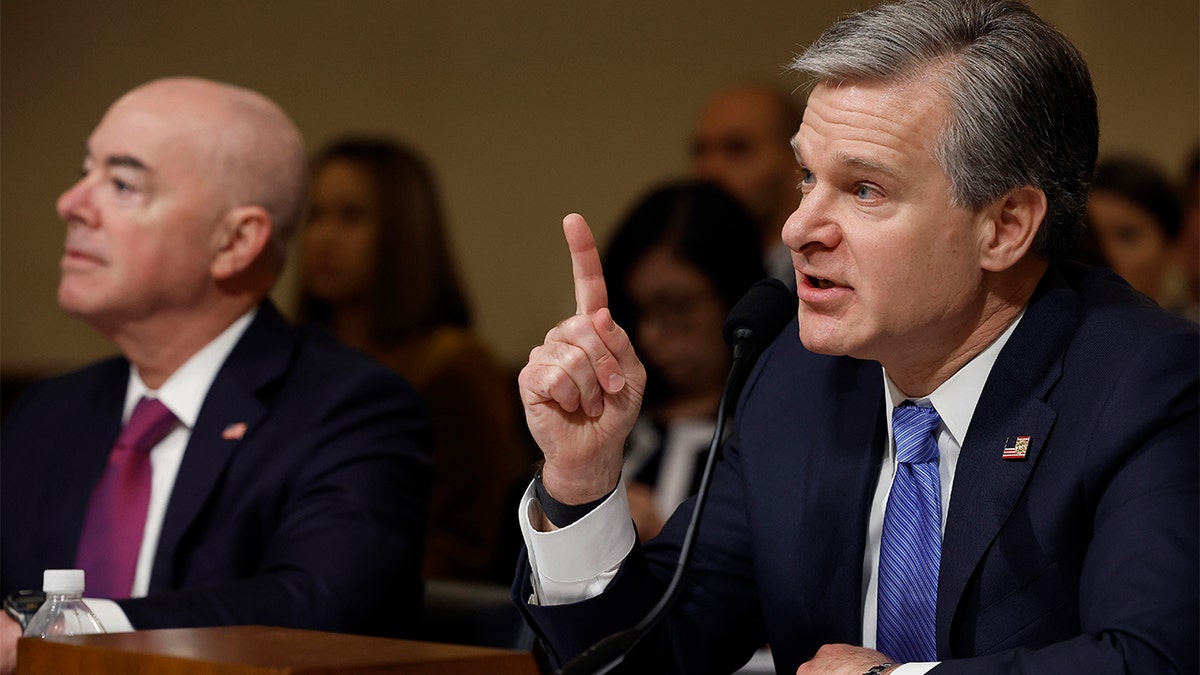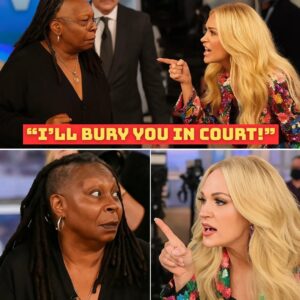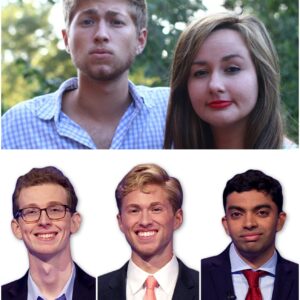Atlanta resident Christopher Robertson is facing federal charges after being arrested by the FBI for alleged violent threats against Black people. Dr. Rashad Richey and Yasmin Aliya Khan discuss on Indisputable. Tell us what you think in the comments below.
**A Disturbing Saga: The FBI’s Intervention in Georgia’s White Supremacist Threats**
In a shocking turn of events, federal agents from the FBI arrived at the doorstep of a Georgia man whose online activity had sparked national concern. What began as a series of threatening posts against Black and Jewish people escalated to an intense standoff, culminating in the arrest of Christopher Robertson, also known by the alias James Lomac. Robertson’s case has ignited conversations surrounding hate speech, the responsibility that comes with freedom of speech, and the disturbing rise of white supremacy in certain parts of America.
The Rise of a Dangerous Voice

Christopher Robertson, a self-proclaimed spokesperson for the white race, used social media platforms to broadcast violent, racist messages. His rhetoric was both chilling and explicit, with one particular post on July 28th showing him holding a black pistol and making threats of violence. The post’s caption, which included the words, “I will fight for it. I will die for it. I will kill for it,” painted a terrifying picture of a man willing to engage in violence to defend what he claimed was the cultural survival of the white race. These declarations were more than just idle threats—they were a call to action, one that had already started manifesting in real-life confrontations.
Robertson’s social media activity quickly caught the attention of the FBI. His online posts, including one from August 1st, escalated in tone and substance. In that video, Robertson threatened to murder Black people who, according to him, “lash out openly at the white man,” making his intentions clear in a vile proclamation: “We will kill the ish out of you guys. We will effing murder you.” These words, posted on a public platform, could not be ignored, and it was only a matter of time before federal agents took action.
### A Disturbing Visit to Jewish Communities
Robertson’s threats were not confined to social media. On July 30th, he visited the Jewish Federation of Greater Atlanta and identified himself as the “official spokesperson for the white race,” demanding to speak with a high-ranking Jewish official. When security at the Jewish Federation denied his request, Robertson moved on to a synagogue in Midtown, Atlanta, where he continued to make derogatory remarks about Jewish people and about what he claimed was the decline of the white race. Robertson’s behavior became even more erratic as he went to a Jewish Chabbat building, filming himself while making offensive statements about Jews and declaring, “We are on the verge of extermination.” His actions were a direct violation of any social norms, and the threats he posed to these communities were not taken lightly.
After Robertson’s unsettling encounter at the synagogue, the rabbi promptly called 911, fearing that his behavior was more than just talk—it was a veiled threat of violence. The call was justified: a man who publicly declared his intention to harm others based on their ethnicity or race posed an immediate danger to the community.
The FBI’s Intervention and Arrest

The FBI, having been notified by the Secure Community Network, a national organization dedicated to the safety of Jewish communities, sprang into action. On August 1st, federal agents arrived at Robertson’s home, where he had barricaded himself. His arrest followed a tense standoff, but after several hours, he surrendered without further resistance. The arrest was a necessary intervention, given the gravity of Robertson’s threats and his demonstrated willingness to act on them.
What is most alarming about this case is the display of hate-fueled rhetoric that went beyond the digital world and entered physical spaces. Robertson’s threats were not confined to a private conversation or a remote part of the internet; he actively sought out Jewish and Black communities to intimidate, provoke, and instigate fear. The FBI’s decision to intervene before a tragedy could occur is a rare and important example of preventive action in a country that too often responds reactively to hate crimes after the damage is done.
### A Claim of Free Speech: Robertson’s Defense
In the aftermath of Robertson’s arrest, his brother took to social media to defend him, claiming that his brother was simply exercising his freedom of speech. “He has been voicing his opinion on social media, and this is not right,” the post read. However, this defense falls short of addressing the clear and present danger that Robertson’s words posed to the public. While freedom of speech is a cornerstone of American democracy, it is not absolute. As the law stipulates, speech that incites violence or poses a direct threat to others is not protected.
The United States Attorney for Georgia’s Northern District, Theodore S. Herzburg, issued a statement highlighting the severity of Robertson’s actions: “The allegations against Robertson, which include menacing visits to Jewish facilities and vile online threats against Jews and blacks, are of great concern. Protecting the community from hate-fueled violence is a foundational part of the Department of Justice’s mission. We will aggressively prosecute criminals who abuse the internet to terrorize and intimidate others.”
The Legal Implications: Terroristic Threats and Free Speech
Robertson’s case underscores the complex intersection of free speech and public safety. While Americans are entitled to express their opinions, those opinions cannot be used as a shield to promote hate, intimidation, or violence. Robertson violated several laws, including making specific threats against individuals and groups, both online and in person. The law regarding terroristic threats requires that the individual making the threat has the means to carry it out and that the threat is imminent and credible.
Robertson’s repeated threats and his actions—visiting community centers, threatening people in person, and posting videos of himself with weapons—crossed the line from mere speech to actionable violence. His words were not harmless; they were a deliberate attempt to instill fear and incite harm. The FBI’s actions were not just necessary; they were a reminder that free speech does not give anyone the right to threaten or intimidate others into submission.
### A Broader Conversation: Hate in America
The arrest of Christopher Robertson shines a light on the ongoing issue of hate groups in America. While many of these groups operate in the shadows, using the internet as a tool to spread their venom, some, like Robertson, take their hatred into the real world. This case also raises troubling questions about the rise of white supremacy and the ways in which individuals with extremist views are able to garner attention and support online.
While the FBI’s intervention in this case is commendable, it also serves as a stark reminder of the threat that hate-based violence poses to vulnerable communities. Black and Jewish communities have long been the targets of such violence, and this case highlights the importance of early intervention and the need for continued vigilance.
The legal system must continue to hold individuals accountable for their actions, especially when those actions are fueled by hate. The challenge remains in ensuring that hate speech is not normalized or allowed to fester in the dark corners of the internet. As we move forward, we must ask ourselves how we can better combat the rise of hate and ensure that the voices of intolerance are silenced before they turn into violence.





